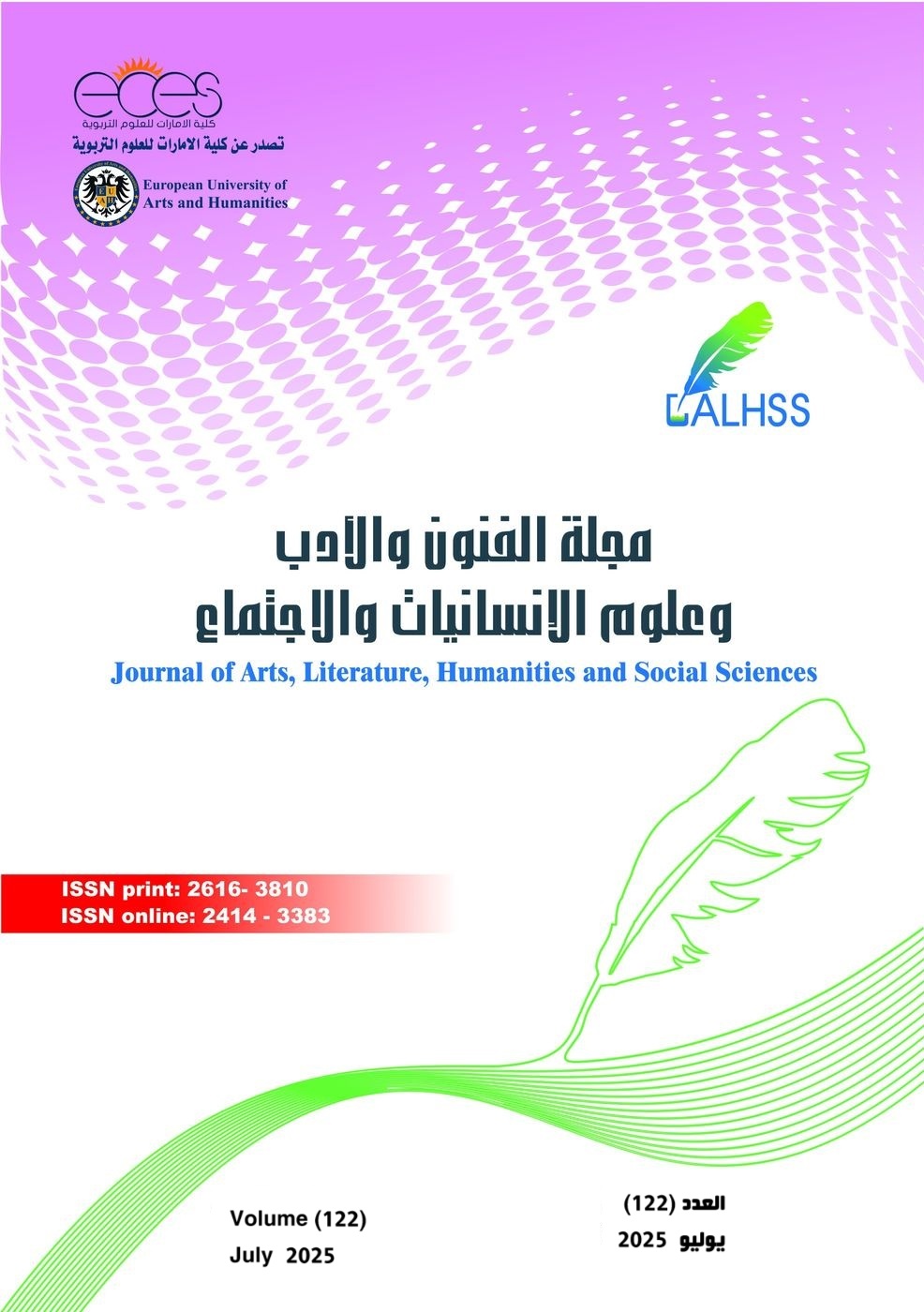The Relationship Between School Violence, Aggressive Behavior, and Academic Achievement Among High School Students in the City of Jerusalem
Abstract
The aim of this study was to explore the impact of school violence and aggressive behavior on the academic achievement of students in Jerusalem schools. A quantitative methodology was used in this study. The study population consisted of all students in East Jerusalem schools, totaling (98,428) students distributed across (258) schools, with a sample size of (230) students. The results showed that aggressive behavior negatively affects the academic achievement of students in Jerusalem schools, and school violence also has a negative impact on their academic performance. To reduce the phenomenon of school violence and aggressive behavior among students in Jerusalem schools, a series of practical recommendations encompassing educational, psychological, and social aspects can be adopted. These recommendations aim to foster a safe and supportive educational environment and alleviate the psychological and social pressures faced by students: (1) training teachers and administrators on effective and non-violent techniques to handle violence and aggressive behaviors, and enhancing their skills in managing the psychological pressures experienced by students, (2) establishing and strengthening psychological and social support programs within schools, (3) improving the school environment to be supportive and attractive to students, (4) developing educational curricula to include interactive programs that enhance students' social and communication skills, (5) strengthening the partnership between schools, parents, and the local community, (6) organizing awareness campaigns within schools and residential areas, and (7) encouraging students to participate in extracurricular activities such as sports, music, and arts.
References
2. بوشايب، دليلة؛ شعيبات، حكيمة. (2017). العنف المدرسي وعلاقته بالسلوك العدواني والتوافق الدراسي لدى المراهقين المتمدرسين، رسالة ماجستير غير منشورة، جامعة مولود معمري تيزي وزو، تونس.
3. الحضريتي، يحي عبد العزيز عبيد. (2022)، درجة المثابرة لدى عينة من الطلبة الموهوبين بالمرحلة الثانوية بمحافظة الليث بالمملكة العربية السعودية، مجلة كلية التربية أسيوط، 38(6)، 262-306.
4. الظهوري، خديجة. (2022). آثار التنمر المدرسي على ضحايا التنمر من وجهة نظر المعلمين وسبل مواجهتها "دراسة ميدانية على عينة من المعلمين بمدارس الشعلة الخاصة بمدينة الشارقة، مجلة الآداب: 1(143)، 22-50.
5. عباد، حنان. (2019). سوسيولوجيا العنف المدرسي نصيب الاجتماعي في تفسير العنف المدرسي، المجلة المغربية للتقييم والبحث التربوي، 2(10)، 1-15.
6. عساف، رشا. (2024). ظاهرة العنف المدرسي لدى طالبات المرحلة الثانوية (الأسباب ومقترحات الحل)، مجلة كلية التربية أسيوط، 1(90)، 420-442.
7. عميار، مريم. (2023). العنف المدرسي وعلاقته بالتحصيل الدراسي لدى تلاميذ مرحله التعليم المتوسط، رسالة ماجستير غير منشورة، جامعة محمد الصديق بن يحيى جيجل، الجزائر.
8. Abdelaziz, E. M., & Abu‐Snieneh, H. M. (2022). The impact of bullying on the mental health and academic achievement of nursing students. Perspectives in Psychiatric Care, 58(2), 623-634.
9. Bougie, R., & Sekaran, U. (2019). Research methods for business: A skill building approach: John Wiley & Sons.
10. Cornell, D. G. (2020). Threat assessment as a school violence prevention strategy. Criminology & Public Policy, 19(1), 235-252.
11. Elias, H., et al. (2011). Stress and academic achievement among undergraduate students in Universiti Putra Malaysia. Procedia-Social and Behavioral Sciences, 29, 646-655.
12. Goodman, R. D., et al. (2012). Traumatic stress, socioeconomic status, and academic achievement among primary school students. Psychological trauma: Theory, research, practice, and policy, 4(3), 252.
13. Granvik Saminathen, M., et al. (2021). The role of academic achievement in the relationship between school ethos and adolescent distress and aggression: a study of ninth grade students in the segregated school landscape of Stockholm. Journal of Youth and Adolescence, 50(6), 1205-1218.
14. Gustems-Carnicer, J., et al. (2019). Stress, coping strategies and academic achievement in teacher education students. European Journal of Teacher Education, 42(3), 375-390.
15. Kim, Y. K., et al. (2020). Risk factors of academic performance: Experiences of school violence, school safety concerns, and depression by gender. Paper presented at the Child & Youth Care Forum.
16. Kulkarni, T., et al. (2021). Externalizing behavior problems and low academic achievement: Does a causal relation exist? Educational Psychology Review, 33(3), 915-936.
17. Mursaleen, M., & Munaf, S. (2020). Differences of Emotional Intelligence, Aggression, and Academic Achievement among students with different levels of Intellectual Ability. Bahria Journal of Professional Psychology, 19(2).
18. Shirin, A. (2020). Determining the relationship between academic achievement and prosocial behavior of secondary school students in Dhaka City. International Journal of Research and Reviews in Education, 6(1), 6-15.
19. Turanovic, J. J., & Siennick, S. E. (2022). The Causes and Consequences of School Violence: A Review. National Institute of Justice.
20. Umunnakwe, A., et al. (2021). Quantitative analysis of power systems resilience: Standardization, categorizations, and challenges. Renewable and Sustainable Energy Reviews, 149, 111252.
21. Vega, A., et al. (2022). Emotional intelligence and aggressive behaviors in adolescents: A systematic review and meta-analysis. Trauma, Violence, & Abuse, 23(4), 1173-1183.
22. Zysberg, L., & Schwabsky, N. (2021). School climate, academic self-efficacy and student achievement. Educational Psychology, 41(4), 467-482.
Copyright (c) 2025 حنان راتب حسن عبد الحليم

This work is licensed under a Creative Commons Attribution-ShareAlike 4.0 International License.



